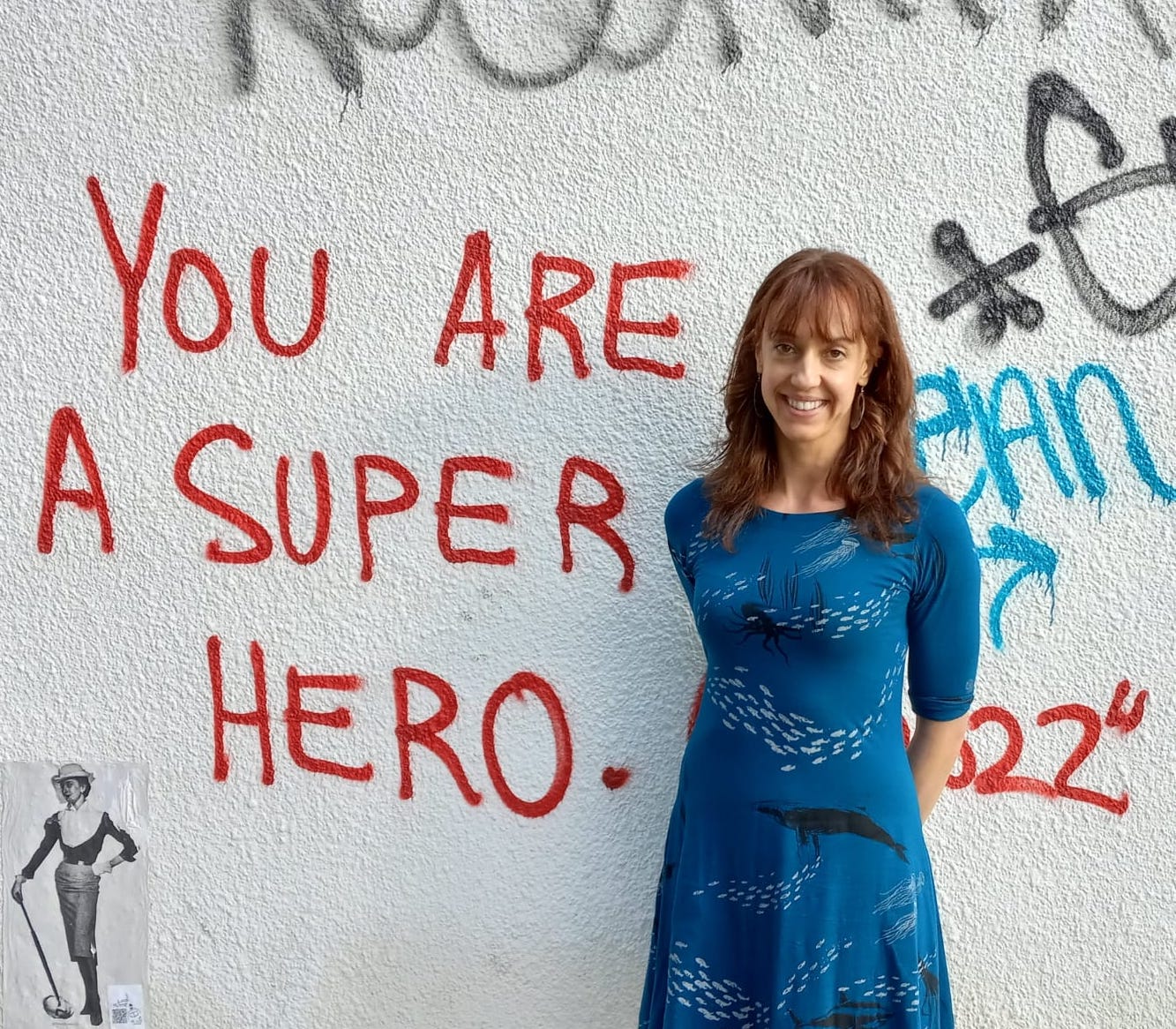Question your preconceptions in ISP250: Queer/ing composition
In her upcoming course, Dr. Amanda Paxton encourages students to challenge the invisible rules that they follow.
Our language shapes us. The words we hear around us develop our beliefs and values, and the words we speak cement our personality. Without even realizing it, language can ensnare you in a narrow way of thinking and living. As Dr. Amanda Paxton, an assistant professor at the University of Toronto Mississauga’s Institute for the Study of University Pedagogy, explained in an interview with The Medium, “It’s easy to go through life without reflecting on the way that the assumptions baked into our language and our culture determine how we think about ourselves, narrate our stories, and live in the world.”
Do you want to take it easy? Or do you want to come face to face with the invisible rules you live by without knowing? Dr. Paxton offers you a chance to come to terms with some of these “rules” in her new class ISP250: Queer/ing Composition, which she will be teaching in Winter 2024.
What struck me as odd was the word “Queer/ing” in the course description. As Dr. Paxton explained: “The slashed word ‘Queer/ing’ in the course title shows the two approaches we’ll be taking in the course.” The first approach is looking at “queer” as an adjective and examining queer texts. In Dr. Paxton’s own words, the first approach delves into queer theory, which she defines as “turning a curious, intellectually inquisitive eye to things that often go unquestioned: ideas of what it means to be a man or a woman, what it means to be a sexual being, what is meant by sex or partnering or even bodies.”
Dr. Paxton plans to examine these concepts by looking at the “complicated history of language” in queer communities. She explained that language has oppressed queer communities, such as when “medicalized terminology was used to treat anyone who wasn’t cis-gendered and heterosexual as ill or criminal.”
However, she acknowledged that language has liberated the queer communities during their most trying times. She noted that language was “a tool of liberation during the HIV/AIDS crisis of the 1980s and 1990s when activists fought against the silence with which government officials like Ronald Regan responded to a virus that was devastating gay male communities.”
Language was a salvation to the queer community in early 20th century Britain, where “groups of gay men used ‘Polari’ as an insider code to recognize each other, form community, and vet outsiders” when homosexuality was illegal in the UK. Language is also a form of connection, as revealed by the Queer Digital History Project, which Dr. Paxton shared “archived some of the first queer online forums, which were often the first place that members were able to come out as queer, a legacy that we still see in online spaces today.”
ISP250 will look into numerous forms of queer writing to reach a thorough understanding of queer communities and how language shapes them. This process, in turn, teaches students a way to challenge their own preconceptions.
By studying different queer texts, you may come across ideas that challenge previously-held beliefs or present a new spin on an issue that you may not have considered before. ISP250 aims to show students how to examine these new perspectives and use them to continually develop their ideas. Through the knowledge and understanding gained from this analysis, Dr. Paxton will then pursue the second approach of the course: focusing on “queering our own forms of writing.”
The university traditionally focuses “on training students to speak the language of the academy.” However, Dr. Paxton wants to go beyond that, and to impress upon students “a broader perspective of what’s possible in writing.” Rather than training students to remain in the old era where argumentation and disputation are the pinnacle of academia, she seeks to create a new world where we can “integrate diversity into our writing to enrich it.”
Rather than being restricted to the standard university essay, part of ISP250 is to encourage “[students to experiment] with different styles of writing in order to see how the form of our writing influences its content.” The focus is not just on developing a new opinion, but also considers how to voice that opinion. Rather than blindly writing an essay, consider the best way to voice your opinion. Is it through satire? Is it through poetry? Which medium best conveys information? These are the types of questions that Dr. Paxton wants you to ask yourself.
As Dr. Paxton eloquently puts it: “Language also has endless possibilities by which to convey who we are and to learn about others. Through studying diversity and putting diverse methods of writing into practice, I want students to have a richer set of tools with which to question norms, push limits, and bring new perspectives to a world that needs them.” Rather than absentmindedly following those invisible rules, consider breaking a few—it might be fun.
Features Editor (Volume 51); Associate Features Editor (Volume 50) — Madhav is a third year student completing a double major in mathematics and computer science, and a minor in professional writing. Everyone in UTM has a unique story that makes them special and deserves to be told. As the Features Editor, Madhav wants to narrate these types of stories with creative and descriptive writing. In his off-time, Madhav loves watching anime, reading manga or fantasy novels and listening to music.


